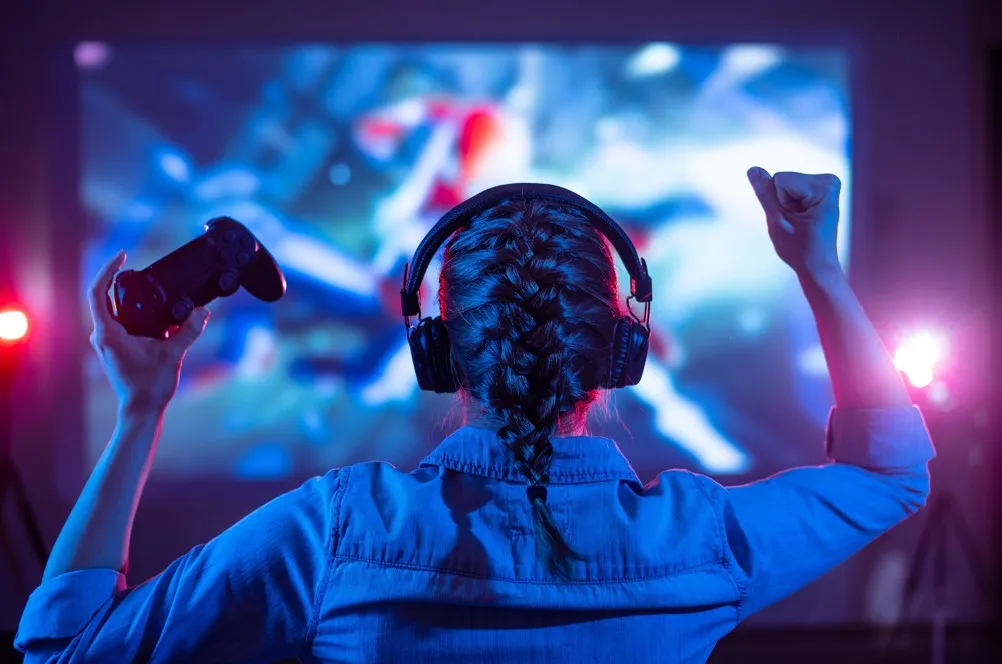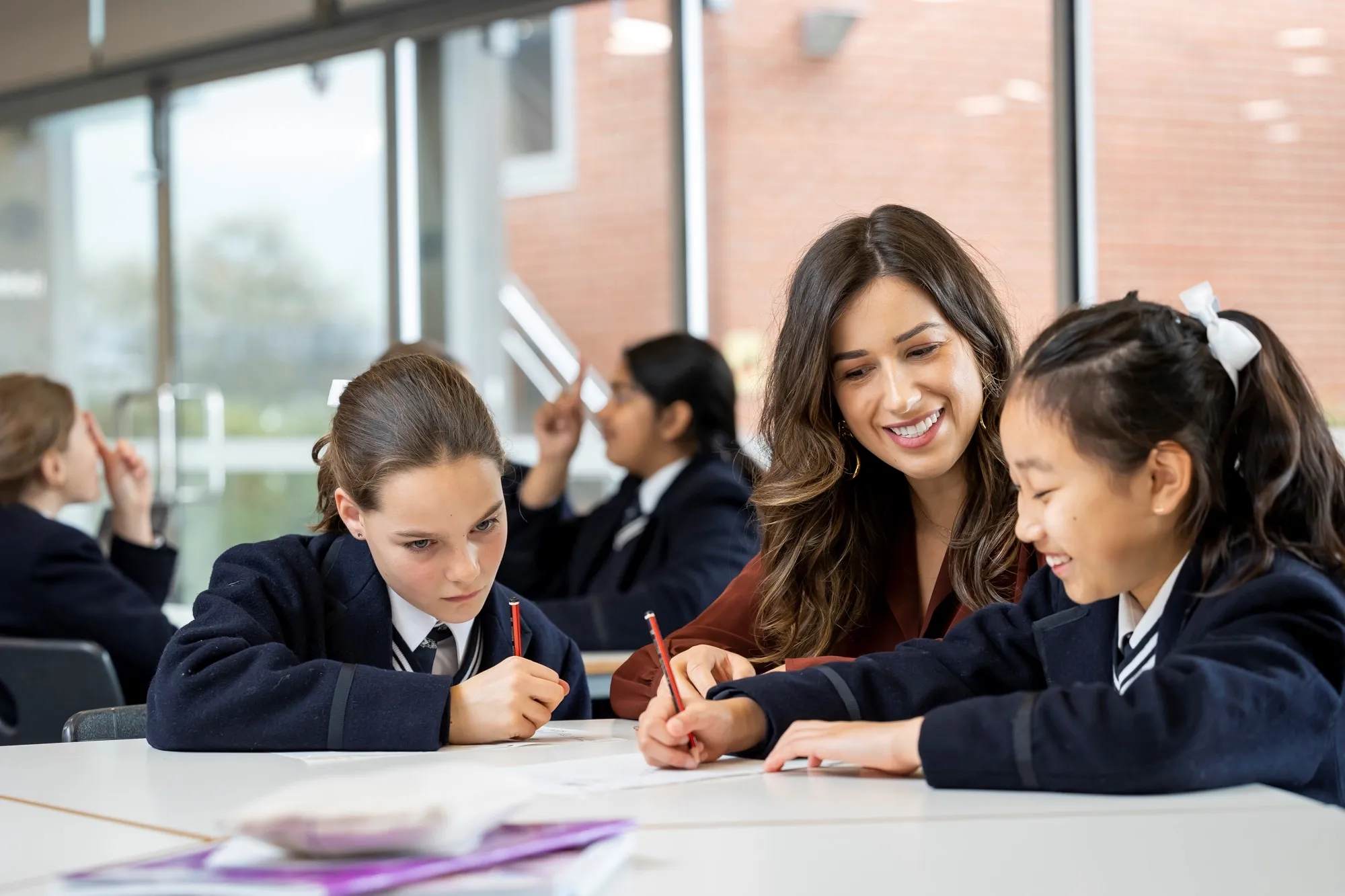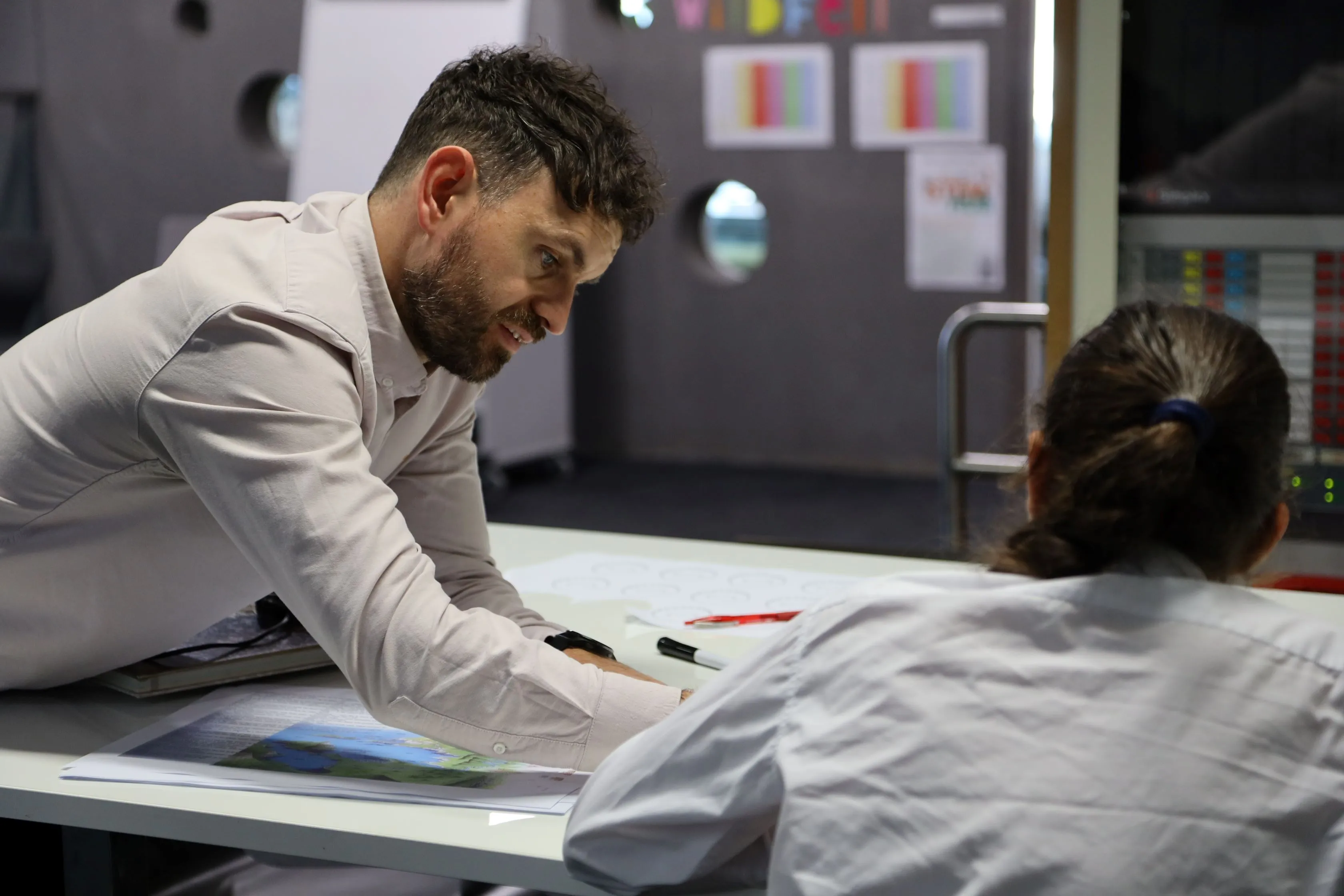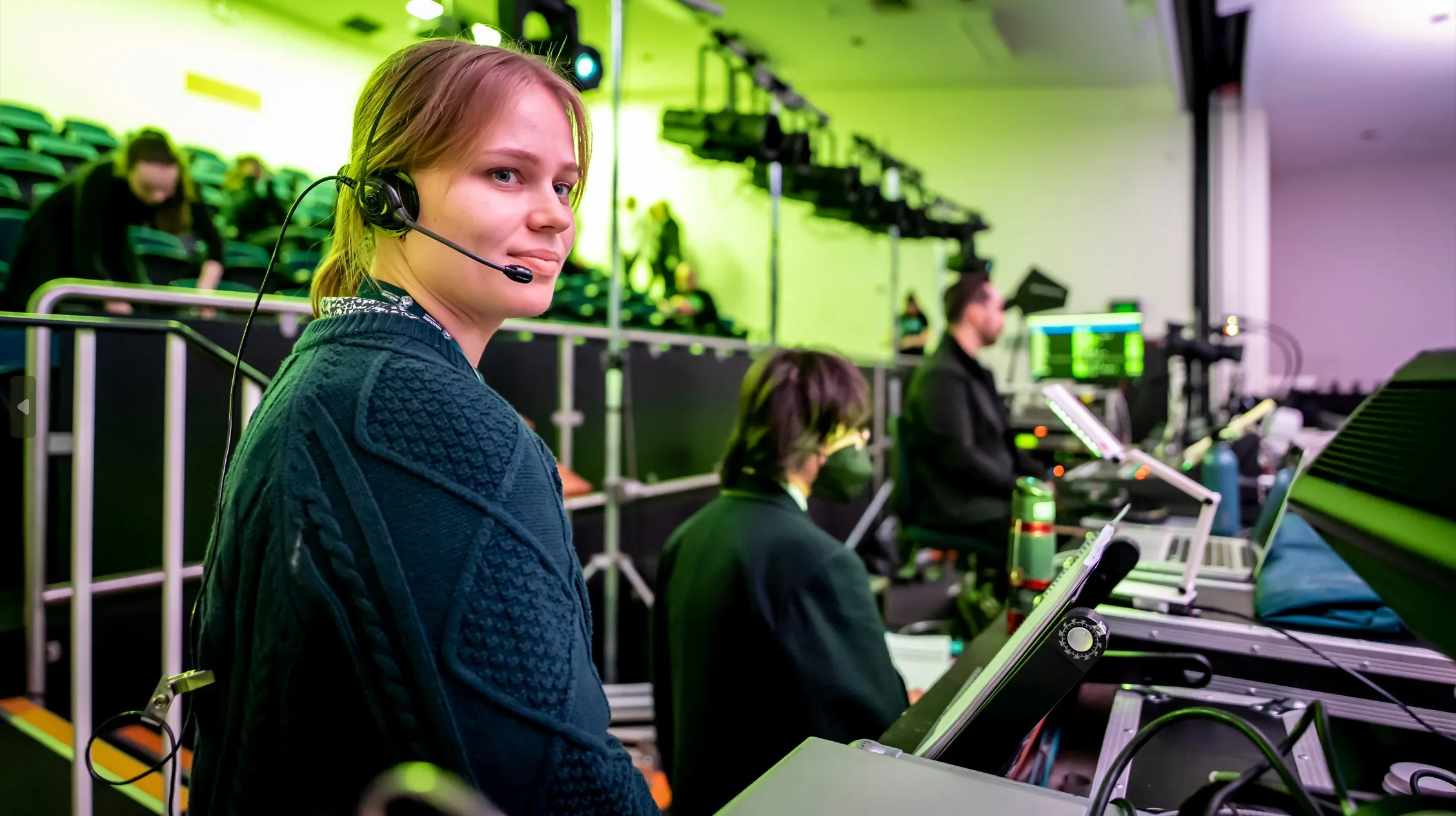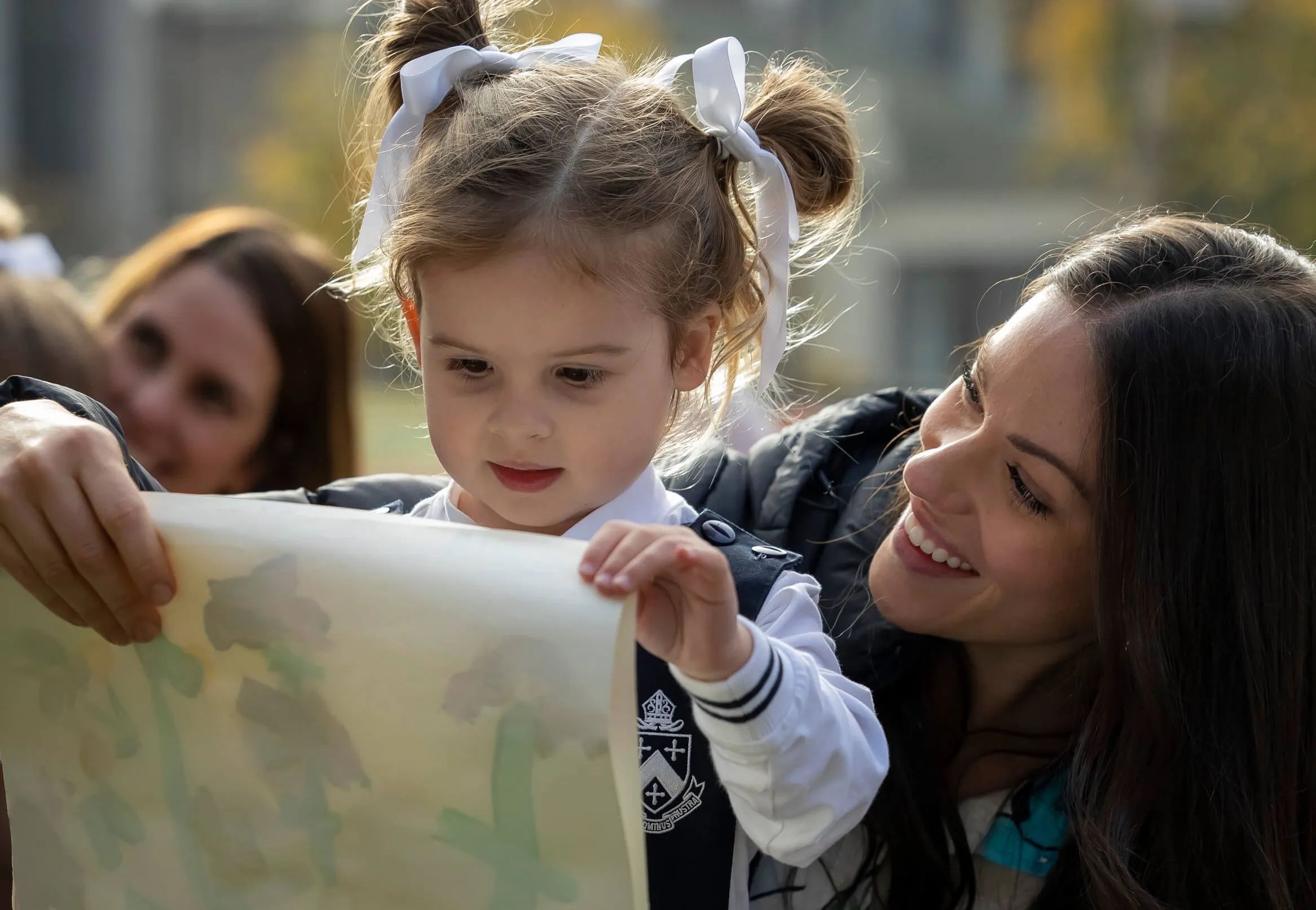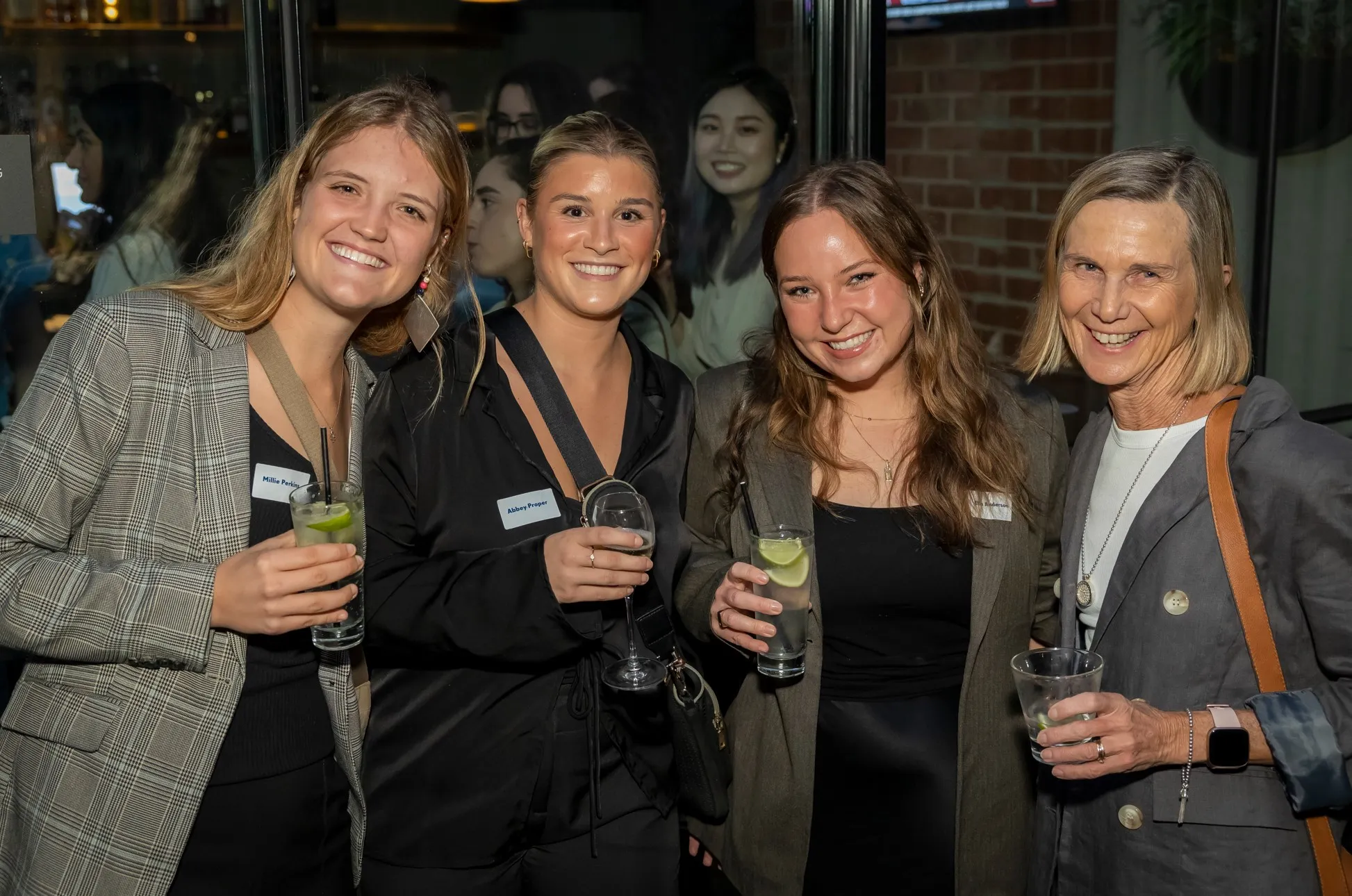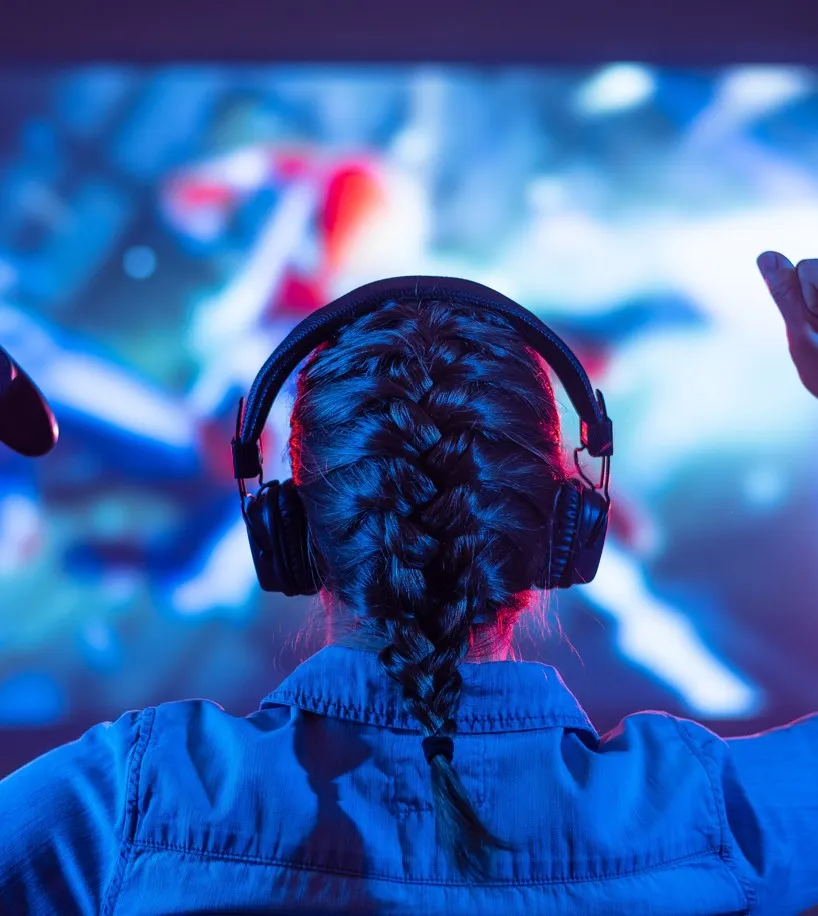

DON'T HATE THE GAME.


DON'T HATE THE GAME.
Changing the Game: esports Takes on Education
Though 'gaming' is often perceived as an after-school hobby, increasingly, esports are being incorporated into places of education, and for a good reason.

Since ‘gaming’ became mainstream, society has been warned about the negative effects of video games – they are seen to encourage violent behaviour, discourage children to dedicate time to their schoolwork, promote anti-social tendencies, and more.
In recent years, the gaming discourse has become more nuanced. Research has discovered its many benefits, including the ability to improve skills in problem-solving, leadership, creativity, strategic thinking and planning, perseverance, resilience, time management, and memory. But gaming also helps develop pro-social behaviour with regards to encouraging healthy competition, while also fostering the ability to manage expectations of success and failure.
Since ‘gaming’ became mainstream, society has been warned about the negative effects of video games – they are seen to encourage violent behaviour, discourage children to dedicate time to their schoolwork, promote anti-social tendencies, and more.
In recent years, the gaming discourse has become more nuanced. Research has discovered its many benefits, including the ability to improve skills in problem-solving, leadership, creativity, strategic thinking and planning, perseverance, resilience, time management, and memory. But gaming also helps develop pro-social behaviour with regards to encouraging healthy competition, while also fostering the ability to manage expectations of success and failure.
Since ‘gaming’ became mainstream, society has been warned about the negative effects of video games – they are seen to encourage violent behaviour, discourage children to dedicate time to their schoolwork, promote anti-social tendencies, and more.
In recent years, the gaming discourse has become more nuanced. Research has discovered its many benefits, including the ability to improve skills in problem-solving, leadership, creativity, strategic thinking and planning, perseverance, resilience, time management, and memory. But gaming also helps develop pro-social behaviour with regards to encouraging healthy competition, while also fostering the ability to manage expectations of success and failure.
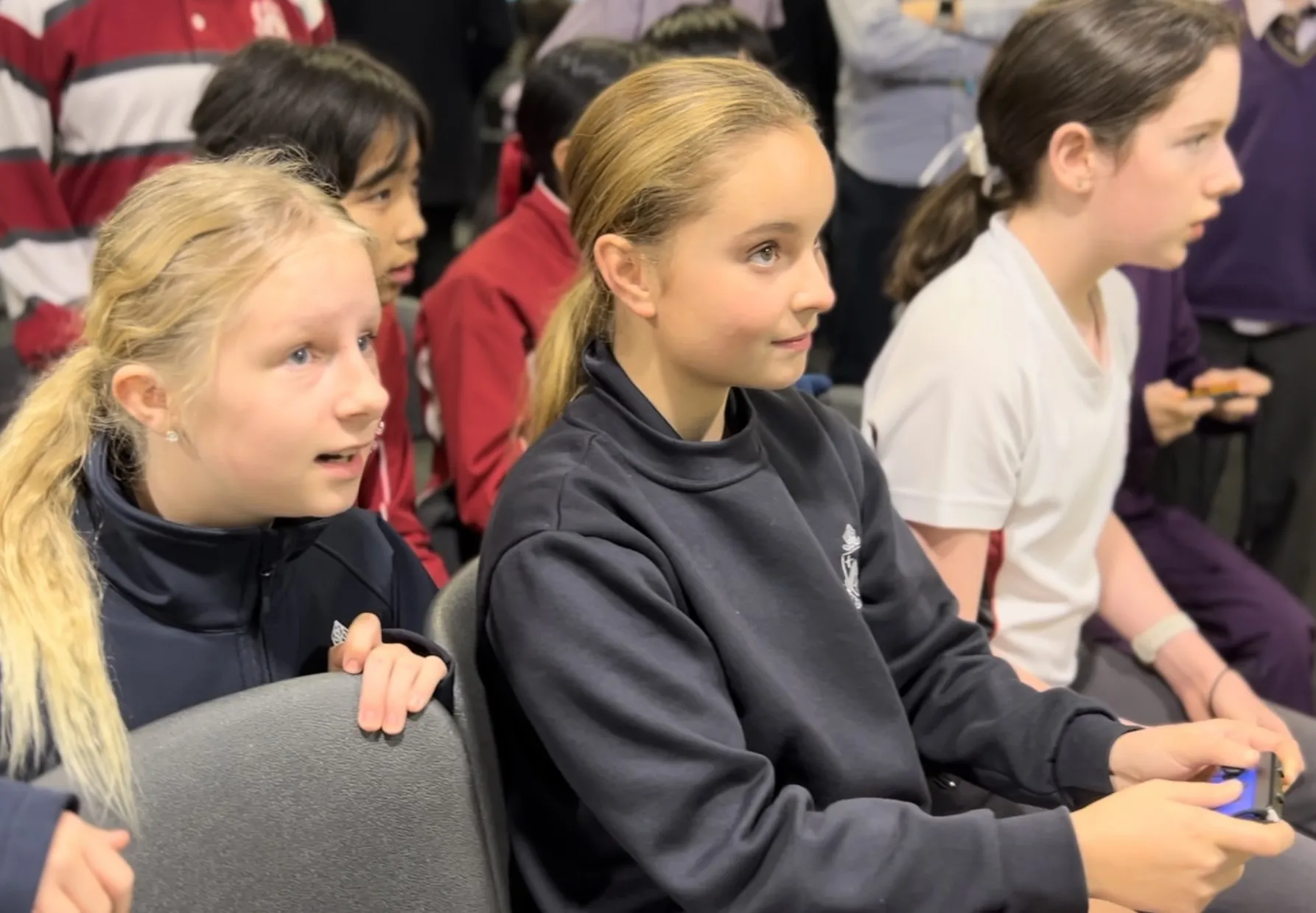

eSports are taking off at MGGS.



eSports are taking off at MGGS.
As the benefits of gaming become more broadly acknowledged and accepted in a pedagogical capacity, it is slowly being incorporated into school education “as a path for building science, technology, engineering, art, and maths [STEAM], and social-emotional skills.” Additionally, research has shown that the incorporation of esports in schools fosters a greater interest in STEAM programs.
Currently, gaming appears in schools in the form of its sub-category esports which sees teams participate in online video game competitions. Melbourne Girls Grammar is at the forefront of esport co-curricular activities. This year, MGGS became the exclusive host school for the Melbourne Metro FUSE Cup – an International School esports Competition for Years 5 and 6; Years 7 and 8; and Years 9 and 10.
Our School’s Director of Digital Learning, Craig Nicholls, is a big advocate for the Cup, highlighting how competitive esports allows for “personal growth of our young people”.
"Competitive esports allows our Grammarians to develop teamwork and apply their interpersonal skills in a safe and supportive environment.”
- Craig Nicholls, Director of Digital Learning
"It is through opportunities such as The FUSE Cup that our Grammarians can develop a positive attitude towards their use of technology.”
Year 9 student, Ava Tarascio, is competing in The FUSE Cup. She has been an avid gamer her whole life – her favourite games being The Legend of Zelda, Animal Crossing, and Mario Kart. Ava became interested in esports through MGGS.
“I saw the opportunity to play with other people besides my brothers and actually get to play competitively, rather than just playing for fun,” she says, explaining how participating in The FUSE Cup has helped her gain skills such as perseverance, resilience, teamwork and time management.
As the benefits of gaming become more broadly acknowledged and accepted in a pedagogical capacity, it is slowly being incorporated into school education “as a path for building science, technology, engineering, art, and maths [STEAM], and social-emotional skills.” Additionally, research has shown that the incorporation of esports in schools fosters a greater interest in STEAM programs.
Currently, gaming appears in schools in the form of its sub-category esports which sees teams participate in online video game competitions. Melbourne Girls Grammar is at the forefront of esport co-curricular activities. This year, MGGS became the exclusive host school for the Melbourne Metro FUSE Cup – an International School esports Competition for Years 5 and 6; Years 7 and 8; and Years 9 and 10.
Our School’s Director of Digital Learning, Craig Nicholls, is a big advocate for the Cup, highlighting how competitive esports allows for “personal growth of our young people”.
"Competitive esports allows our Grammarians to develop teamwork and apply their interpersonal skills in a safe and supportive environment.”
- Craig Nicholls, Director of Digital Learning
"It is through opportunities such as The FUSE Cup that our Grammarians can develop a positive attitude towards their use of technology.”
Year 9 student, Ava Tarascio, is competing in The FUSE Cup. She has been an avid gamer her whole life – her favourite games being The Legend of Zelda, Animal Crossing, and Mario Kart. Ava became interested in esports through MGGS.
“I saw the opportunity to play with other people besides my brothers and actually get to play competitively, rather than just playing for fun,” she says, explaining how participating in The FUSE Cup has helped her gain skills such as perseverance, resilience, teamwork and time management.
As the benefits of gaming become more broadly acknowledged and accepted in a pedagogical capacity, it is slowly being incorporated into school education “as a path for building science, technology, engineering, art, and maths [STEAM], and social-emotional skills.” Additionally, research has shown that the incorporation of esports in schools fosters a greater interest in STEAM programs.
Currently, gaming appears in schools in the form of its sub-category esports which sees teams participate in online video game competitions. Melbourne Girls Grammar is at the forefront of esport co-curricular activities. This year, MGGS became the exclusive host school for the Melbourne Metro FUSE Cup – an International School esports Competition for Years 5 and 6; Years 7 and 8; and Years 9 and 10.
Our School’s Director of Digital Learning, Craig Nicholls, is a big advocate for the Cup, highlighting how competitive esports allows for “personal growth of our young people”.
"Competitive esports allows our Grammarians to develop teamwork and apply their interpersonal skills in a safe and supportive environment.”
- Craig Nicholls, Director of Digital Learning
"It is through opportunities such as The FUSE Cup that our Grammarians can develop a positive attitude towards their use of technology.”
Year 9 student, Ava Tarascio, is competing in The FUSE Cup. She has been an avid gamer her whole life – her favourite games being The Legend of Zelda, Animal Crossing, and Mario Kart. Ava became interested in esports through MGGS.
“I saw the opportunity to play with other people besides my brothers and actually get to play competitively, rather than just playing for fun,” she says, explaining how participating in The FUSE Cup has helped her gain skills such as perseverance, resilience, teamwork and time management.
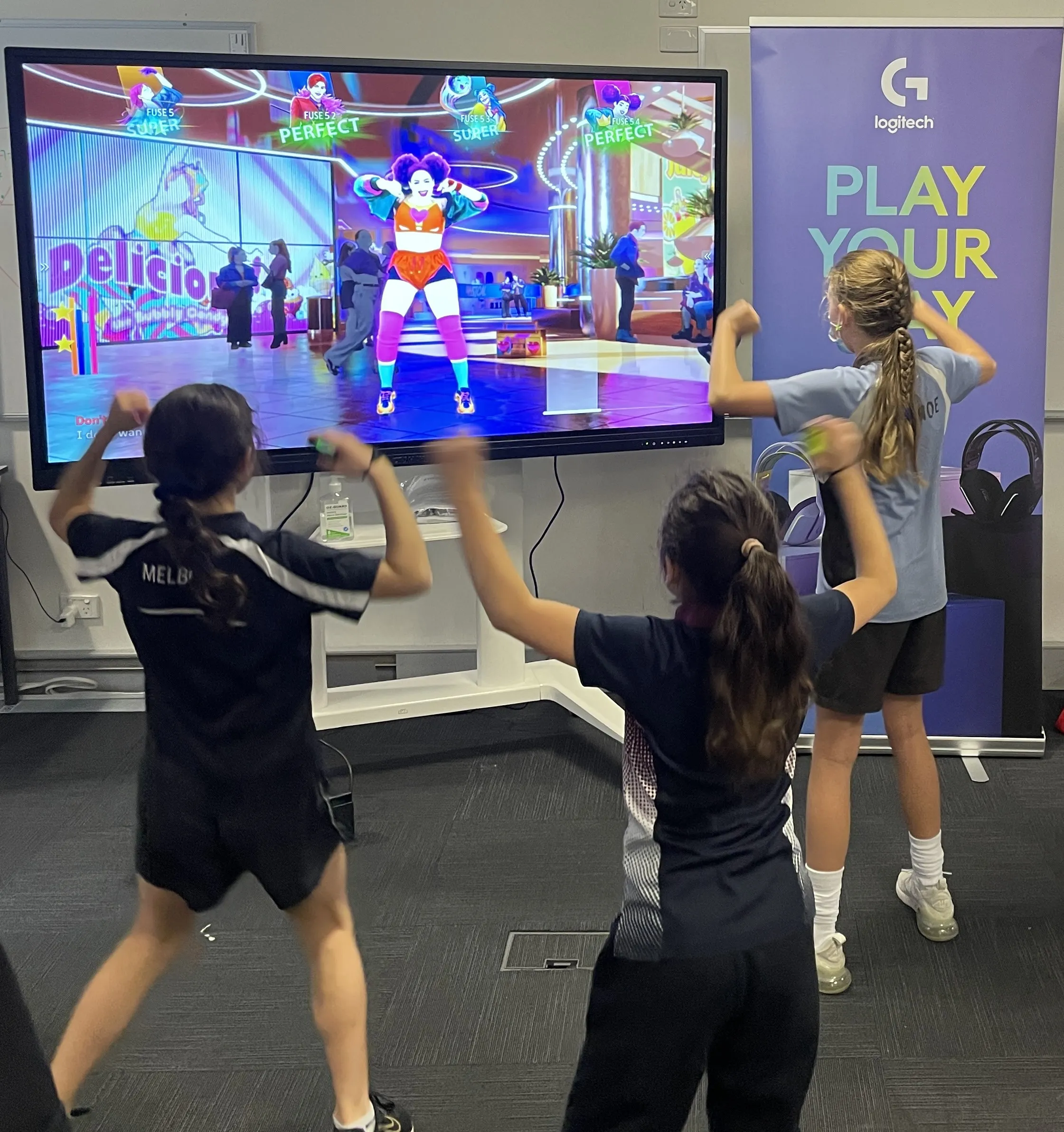

Students competing in Just Dance.



Students competing in Just Dance.
%20(1).webp)
%20(1).webp)
Students competing in Just Dance.
"If I lose one round, there is always the chance of still winning the next round to keep going in the competition, so I never let it get to me and keep going,” Ava explains. “Even if I am knocked out, I like to stay and cheer on my other teammates. I have learned how to balance my time effectively to make sure I also get my schoolwork done.”
Ava also acknowledges that these skills can be applied to her learning. “If I’m struggling to study for exams and feel I’m not doing well for the first exam, there is always the second chance on the next one. I can always get better and continue if I’m struggling.”
With regards to the introduction of gaming into schools, the Year 9 student explains that she had “never heard of esports ‘comps’ before MGGS.” “It’s definitely a new fun experience for me and others to try,” she enthuses, going on to explain how the School differentiates itself from other institutions when it comes to gaming.
“This relates to the mindset and culture of esports at MGGS. Events are usually held at the School showing the leadership we hold in this area. While some other schools don’t pay attention when they are knocked out of the comp, we always stay together and cheer on even the opposing teams.”
Meanwhile, the incorporation of esports into MGGS has opened other innovative avenues for skill development. Indeed, a group of Year 9 Project Management students are in charge of organising each round of the Cup, and co-ordinating the participating schools; it is a great experience in event management and logistics for them.
"If I lose one round, there is always the chance of still winning the next round to keep going in the competition, so I never let it get to me and keep going,” Ava explains. “Even if I am knocked out, I like to stay and cheer on my other teammates. I have learned how to balance my time effectively to make sure I also get my schoolwork done.”
Ava also acknowledges that these skills can be applied to her learning. “If I’m struggling to study for exams and feel I’m not doing well for the first exam, there is always the second chance on the next one. I can always get better and continue if I’m struggling.”
With regards to the introduction of gaming into schools, the Year 9 student explains that she had “never heard of esports ‘comps’ before MGGS.” “It’s definitely a new fun experience for me and others to try,” she enthuses, going on to explain how the School differentiates itself from other institutions when it comes to gaming.
“This relates to the mindset and culture of esports at MGGS. Events are usually held at the School showing the leadership we hold in this area. While some other schools don’t pay attention when they are knocked out of the comp, we always stay together and cheer on even the opposing teams.”
Meanwhile, the incorporation of esports into MGGS has opened other innovative avenues for skill development. Indeed, a group of Year 9 Project Management students are in charge of organising each round of the Cup, and co-ordinating the participating schools; it is a great experience in event management and logistics for them.
"If I lose one round, there is always the chance of still winning the next round to keep going in the competition, so I never let it get to me and keep going,” Ava explains. “Even if I am knocked out, I like to stay and cheer on my other teammates. I have learned how to balance my time effectively to make sure I also get my schoolwork done.”
Ava also acknowledges that these skills can be applied to her learning. “If I’m struggling to study for exams and feel I’m not doing well for the first exam, there is always the second chance on the next one. I can always get better and continue if I’m struggling.”
With regards to the introduction of gaming into schools, the Year 9 student explains that she had “never heard of esports ‘comps’ before MGGS.” “It’s definitely a new fun experience for me and others to try,” she enthuses, going on to explain how the School differentiates itself from other institutions when it comes to gaming.
“This relates to the mindset and culture of esports at MGGS. Events are usually held at the School showing the leadership we hold in this area. While some other schools don’t pay attention when they are knocked out of the comp, we always stay together and cheer on even the opposing teams.”
Meanwhile, the incorporation of esports into MGGS has opened other innovative avenues for skill development. Indeed, a group of Year 9 Project Management students are in charge of organising each round of the Cup, and co-ordinating the participating schools; it is a great experience in event management and logistics for them.
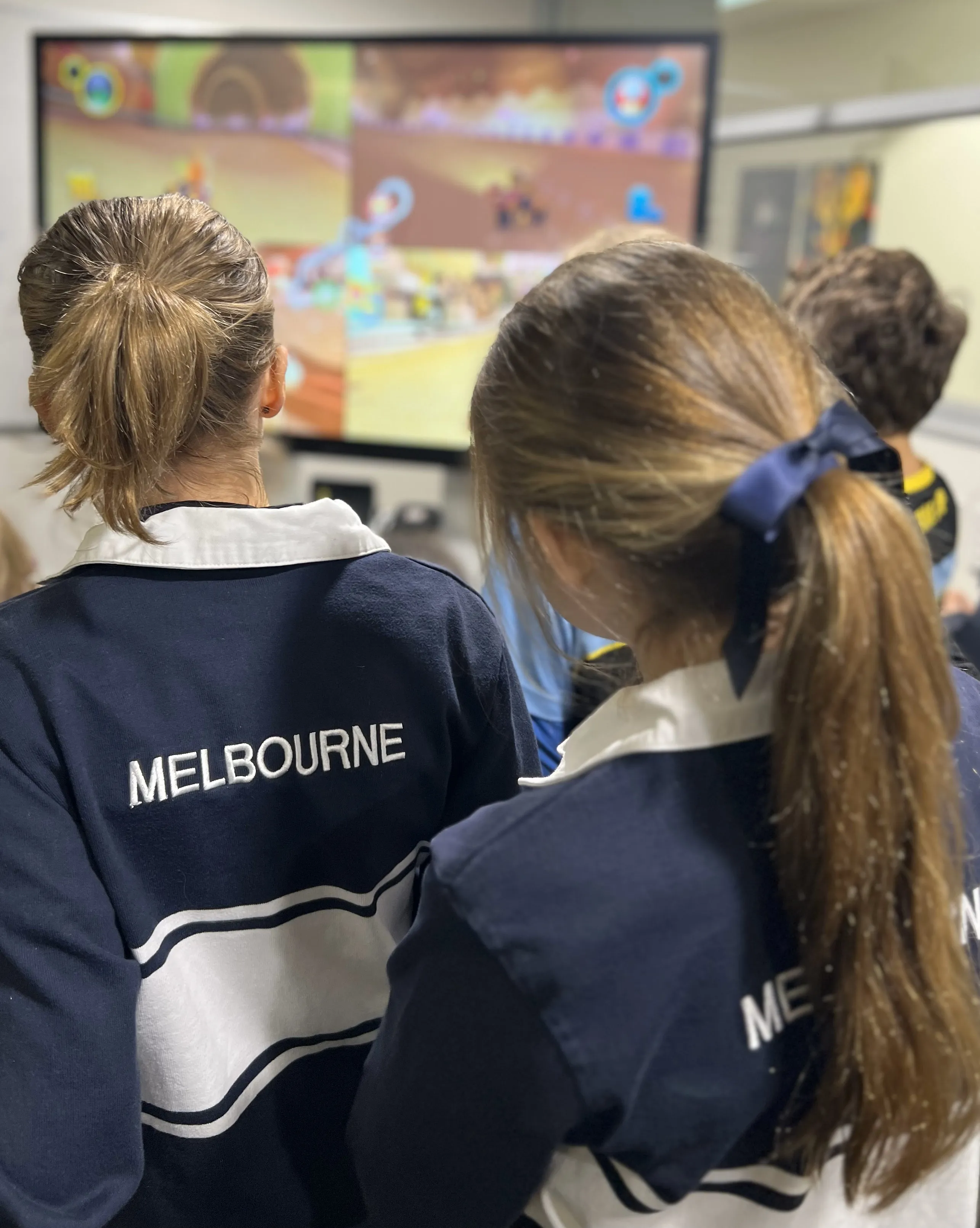

“I like to cheer on my other teammates."



“I like to cheer on my other teammates."


“I like to cheer on my other teammates."
“Since there are so many schools that we help to organise, making sure people sign in and know how to get around; it teaches you to be pretty flexible, to manage your time and be aware of risks,” Annabelle Jackson (AJ) says.
“If something does go wrong then you need to have a plan for that, and I feel like that’s a skill you can use in future workplaces.”
- Annabelle, Year 9
What's more, the Cup doesn’t attempt to ignore the potential disadvantages of gaming, making sure videos about potential risks are shared with participants. “They talk about how too much gaming can be harmful,” AJ says. “They set up a healthy view on gaming and convey the message that it can be constructive at times, when you take in little bits.”
Overall, the world of co-curricular programs has taken a big leap from when many of us were at school. Progress is rapid in today’s world and finding synergies between fun activities and translating the learning into the world of work has been a real innovation. Students at MGGS are seeing firsthand the value of preparation, collaboration, self-management, as well as how important it is to support and encourage others to achieve their best.
REFERENCES:
https://www.viewsonic.com/library/education/esports-schools-good/
https://educationaladvancement.org/blog-the-good-and-the-bad-effects-of-video-games-on-children/
“Since there are so many schools that we help to organise, making sure people sign in and know how to get around; it teaches you to be pretty flexible, to manage your time and be aware of risks,” Annabelle Jackson (AJ) says.
“If something does go wrong then you need to have a plan for that, and I feel like that’s a skill you can use in future workplaces.”
- Annabelle, Year 9
What's more, the Cup doesn’t attempt to ignore the potential disadvantages of gaming, making sure videos about potential risks are shared with participants. “They talk about how too much gaming can be harmful,” AJ says. “They set up a healthy view on gaming and convey the message that it can be constructive at times, when you take in little bits.”
Overall, the world of co-curricular programs has taken a big leap from when many of us were at school. Progress is rapid in today’s world and finding synergies between fun activities and translating the learning into the world of work has been a real innovation. Students at MGGS are seeing firsthand the value of preparation, collaboration, self-management, as well as how important it is to support and encourage others to achieve their best.
REFERENCES:
https://www.viewsonic.com/library/education/esports-schools-good/
https://educationaladvancement.org/blog-the-good-and-the-bad-effects-of-video-games-on-children/







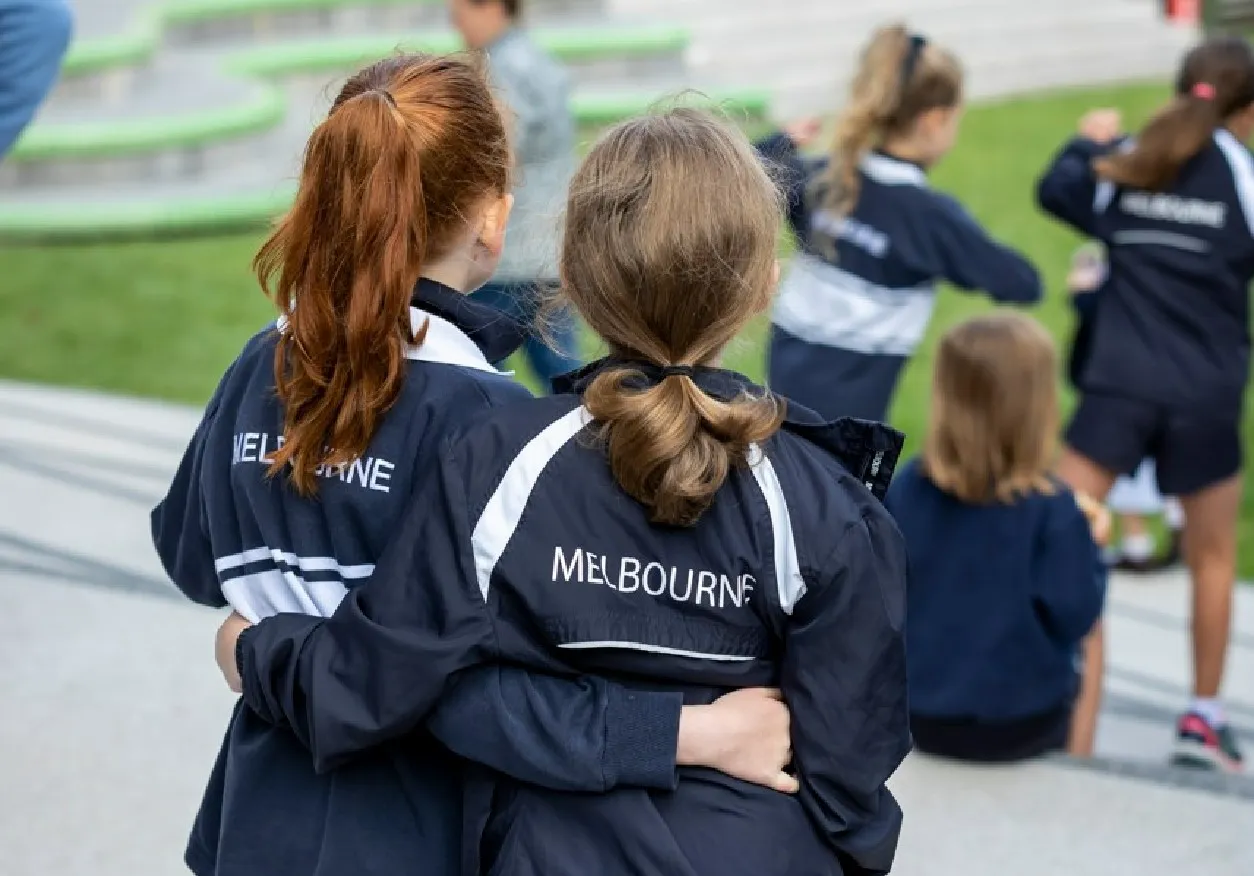

.webp)
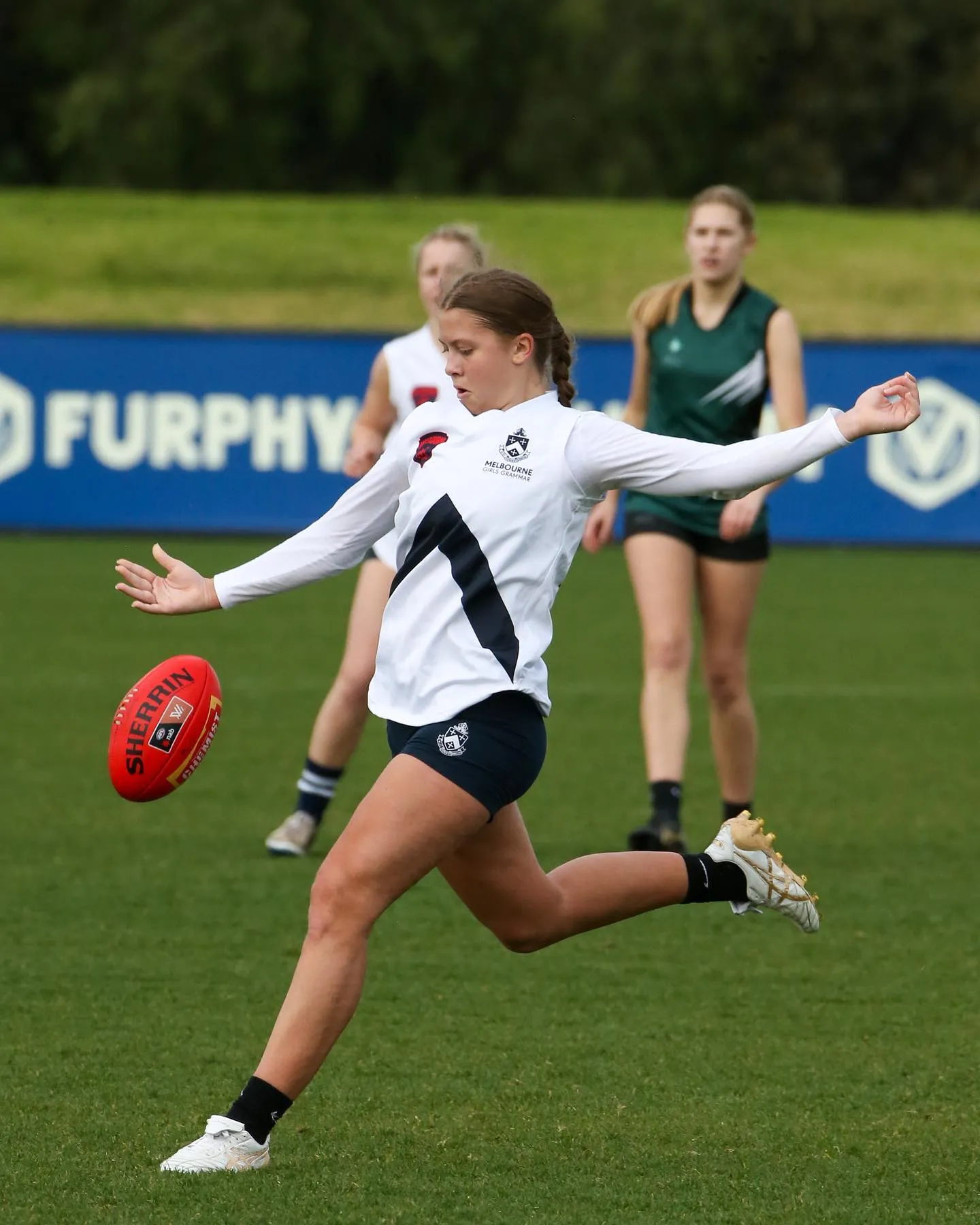
.webp)
